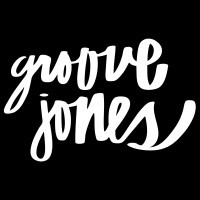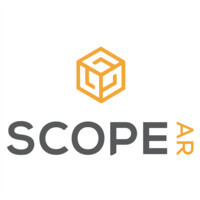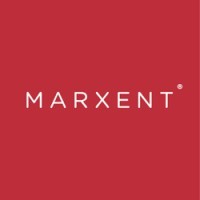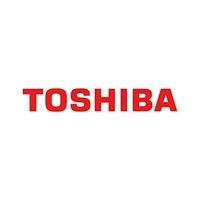Description

Groove Jones

rooom
Comprehensive Overview: Groove Jones vs rooom
As of my last update in October 2023, Groove Jones and rooom are both companies involved in the development of immersive technology, though their primary functions, target markets, and differentiation factors can vary significantly. Here's a comprehensive overview based on the information available:
Groove Jones
a) Primary Functions and Target Markets
-
Primary Functions: Groove Jones specializes in creating immersive Virtual Reality (VR) and Augmented Reality (AR) experiences. Their services include developing custom VR and AR solutions for marketing, training, and entertainment purposes. They are known for their work in creating engaging brand experiences and interactive advertising campaigns using immersive technologies.
-
Target Markets: Groove Jones targets a wide range of industries including advertising, entertainment, automotive, healthcare, and retail. Their primary clients are typically brands and businesses that are looking to leverage immersive technologies to enhance customer engagement and training efficiency.
b) Market Share and User Base
- Groove Jones has carved out a niche in the immersive tech industry, particularly with brands looking for standout marketing experiences. However, specific information about their market share and user base can be hard to pinpoint due to the custom nature of their projects and the project-based relationships typical of marketing and advertising collaborations.
c) Key Differentiating Factors
- Customization and Innovation: Groove Jones is known for its ability to craft highly customized and innovative solutions tailored to specific brand needs, which sets it apart from competitors who may offer more generic solutions.
- Award-Winning Experiences: They have earned recognition within the industry for their creative work, often receiving awards for their innovative VR and AR projects.
rooom AG
a) Primary Functions and Target Markets
-
Primary Functions: rooom AG provides a platform for creating, managing, and displaying 3D content for businesses. This includes tools for creating virtual showrooms, trade fairs, and event spaces, which can be used in a browser-based environment without requiring additional software installations.
-
Target Markets: rooom primarily serves industries such as education, real estate, events, and e-commerce, focusing on businesses that want to leverage 3D and virtual spaces to enhance customer and client engagement. Their solutions are often utilized by educational institutions, real estate firms, and event organizers.
b) Market Share and User Base
- While rooom operates within a growing space of virtual and 3D solutions, exact figures on market share can be elusive. However, they have positioned themselves strongly in the virtual events and digital experience market, attracting a diverse range of businesses looking to innovate their digital interactions.
c) Key Differentiating Factors
- Platform Versatility: rooom is distinguished by its versatile platform that supports the creation and management of a wide range of 3D content, making it accessible and easy to use for different types of businesses without the need for specialized equipment or software.
- Browser-Based Accessibility: One of their key differentiators is that their platform is browser-based, which reduces barriers to entry and enhances user accessibility and ease-of-use.
Comparison
Market Comparison
- Both companies operate in overlapping yet distinct spaces within the immersive technology industry. Groove Jones is more focused on highly specialized, custom solutions primarily for marketing purposes, while rooom provides a broader platform that can be adopted across various industries to create virtual environments without heavy customization per client.
Differentiating Factors
- Groove Jones excels in bespoke, creative immersive experiences tailored to specific brand narratives, whereas rooom provides scalable solutions for virtual environments that can be accessed by a broader range of users and industries.
While both companies capitalize on the growing demand for immersive and digital engagement solutions, their strategies, target markets, and differentiation lie in the level of customization and breadth of application of their technologies.
Contact Info

Year founded :
2015
+1 214-749-0094
Not Available
United States
http://www.linkedin.com/company/groovejones

Year founded :
Not Available
Not Available
Not Available
Not Available
Not Available
Feature Similarity Breakdown: Groove Jones, rooom
To provide a feature similarity breakdown for Groove Jones and rooom, we’ll need to compare their core offerings, user interfaces, and any unique features they have. Both companies operate in the immersive technology and digital experiences space, but they have distinct focuses. Here’s a comparison based on available information:
a) Core Features in Common
-
Immersive Experiences:
- Both Groove Jones and rooom focus on creating immersive experiences, though Groove Jones is more oriented towards AR/VR development while rooom provides broader virtual event and showroom solutions.
-
3D Content Creation:
- Both platforms offer tools for creating and displaying 3D content. Groove Jones specializes in high-quality VR/AR content, and rooom provides tools for interactive 3D environments used in online showrooms and virtual events.
-
Cross-Platform Support:
- Both solutions aim to ensure their experiences are accessible across various devices, including web browsers, mobile devices, and VR headsets (Groove Jones is especially strong here with VR, AR applications).
-
Marketing and Brand Engagement:
- Both target enhancing brand engagement through innovative digital experiences. Groove Jones often works with brands on unique promotional campaigns, while rooom allows brands to create interactive 3D spaces for customer engagement.
b) User Interface Comparison
- Groove Jones:
- Their interfaces vary depending on the specific application or project. Being more service-oriented, their UI design is often custom and project-specific, usually catering to high-end VR and AR applications where user interactions are primarily through immersive, real-time environments.
- rooom:
- rooom provides a more standardized user interface aimed at easy creation and navigation of 3D content. Their platform is designed for business users to easily manage and deploy virtual events, showrooms, and digital spaces with an interface that is intuitive and designed for non-technical users as well.
c) Unique Features
-
Groove Jones:
-
Custom VR/AR Experiences: They are known for tailoring high-end custom AR and VR solutions for marketing, retail, and training. Their bespoke approach sets them apart, offering clients highly personalized immersive solutions.
-
Interactive Installations: Groove Jones often creates on-site experiences and interactive installations, which involve more complex hardware integration than rooom's primarily web-based focus.
-
-
rooom:
-
Virtual Event Platform: rooom has a strong focus on hosting virtual events and managing virtual spaces, providing tools for large-scale digital event management.
-
3D Product Visualization: It caters significantly to businesses looking to create 3D visualizations of products, supporting e-commerce and product showcase use cases.
-
In summary, while both Groove Jones and rooom operate in the realm of digital experiences, Groove Jones focuses on bespoke VR/AR solutions, and rooom specializes in scalable and user-friendly virtual events and 3D content platforms. Their UIs reflect these different focuses, with Groove Jones offering tailored interfaces for immersive projects and rooom offering business-oriented usability for virtual environments.
Features

Not Available

Not Available
Best Fit Use Cases: Groove Jones, rooom
Groove Jones and rooom are both innovative companies that offer distinct solutions, primarily focusing on immersive experiences and digital transformations. Here's a detailed breakdown of their best fit use cases:
a) Groove Jones
Business Types and Projects:
-
Marketing and Advertising Agencies: Groove Jones excels in creating interactive and immersive experiences, making them an ideal partner for agencies looking to deliver cutting-edge campaigns. They specialize in augmented reality (AR), virtual reality (VR), and experiential marketing.
-
Entertainment and Media Companies: Projects that require high-quality immersive storytelling or virtual environments, such as theme park attractions or movie promotions, benefit from Groove Jones' expertise.
-
Retail and E-commerce: Businesses looking to enhance customer engagement through interactive product demos or virtual showrooms can leverage Groove Jones' AR capabilities.
-
Automotive and Manufacturing: For businesses needing complex product visualizations or simulations, Groove Jones can create virtual training modules or 3D product demonstrations.
Scenarios:
-
Product Launches: Creating immersive product demonstrations or virtual reality experiences to showcase new products in a compelling way.
-
Brand Engagement Campaigns: Designing interactive content that enhances brand storytelling and engages customers through unique digital experiences.
b) rooom
Business Types and Projects:
-
Corporate Events and Trade Shows: rooom offers a robust platform for organizing virtual and hybrid events, making it ideal for businesses that host large-scale conferences, expos, or trade fairs.
-
Education and Training Institutions: With capabilities to create virtual classrooms and training environments, educational institutions or corporate training departments can use rooom to enhance remote learning experiences.
-
Real Estate and Architecture Firms: rooom's 3D visualization tools allow for virtual tours and property showcases, benefiting real estate agents and architects.
-
Healthcare and Pharmaceuticals: For companies needing virtual environments for medical training or product expos, rooom can create detailed and interactive simulations.
Scenarios:
-
Virtual Trade Shows and Conferences: Creating engaging and fully immersive virtual events that can accommodate global attendance, with features like networking spaces, exhibitor stands, and live streaming.
-
Digital Learning Platforms: Deployment of virtual learning environments that support interactive content delivery, assessments, and collaborative learning.
d) Industry Verticals and Company Sizes
Groove Jones:
-
Industry Verticals: Primarily focuses on entertainment, advertising, automotive, and retail industries. They cater to projects that demand bespoke and high-quality immersive content.
-
Company Sizes: Groove Jones typically suits medium to large enterprises with substantial budgets for marketing and experiential content, given the custom nature of their solutions.
rooom:
-
Industry Verticals: Has a broader appeal across various industries like events, education, real estate, and healthcare. They provide scalable solutions that fit different purposes from detailed product exhibitions to virtual learning environments.
-
Company Sizes: Suitable for businesses of all sizes, from small to large organizations, due to their versatile and customizable platform. Their solutions can be tailored for smaller firms hosting simple virtual events or large enterprises seeking comprehensive digital transformation tools.
In summary, Groove Jones is best suited for businesses that prioritize high-end, custom immersive experiences, particularly in industries like media and marketing. Meanwhile, rooom is preferred for companies seeking flexible and comprehensive virtual environments, ideal for events, education, and beyond.
Pricing

Pricing Not Available

Pricing Not Available
Metrics History
Metrics History
Comparing teamSize across companies
Conclusion & Final Verdict: Groove Jones vs rooom
To provide a conclusion and final verdict for the comparison between Groove Jones and rooom, let's delve into the details you've requested: evaluating the overall best value, the pros and cons of each product, and recommendations for potential users.
Conclusion and Final Verdict:
a) Best Overall Value: Determining which product offers the best overall value depends significantly on the specific requirements of the user. However, if we consider general use cases, Groove Jones typically excels in creating custom virtual and augmented reality experiences, particularly for industries like marketing and entertainment where visually rich and immersive content is key. On the other hand, rooom is known for its comprehensive all-in-one platform geared towards virtual events, 3D product presentations, and digital showrooms, making it more suitable for businesses looking for a versatile platform that can cater to a broad range of digital experience needs.
In terms of value, if your primary focus is on creating highly-tailored and technically advanced AR/VR content, Groove Jones may offer better value. Conversely, if you need a flexible platform for various types of digital engagements, rooom might be more advantageous.
b) Pros and Cons:
-
Groove Jones:
- Pros:
- Highly specialized in custom AR/VR solutions, providing immersive experiences.
- Strong creative and technical expertise, ideal for projects that require innovation and detailed execution.
- Excellent for industries like gaming, entertainment, and experiential marketing.
- Cons:
- May be cost-prohibitive for smaller projects or businesses with budget constraints.
- Primarily focused on customized solutions, which might be overly complex for simpler needs.
- Pros:
-
rooom:
- Pros:
- Versatile platform supporting a variety of digital and virtual experiences.
- Easy to use with strong scalability for events of all sizes.
- Offers a broad range of tools for industries like education, e-commerce, and corporate events.
- Cons:
- May not offer the same level of specialization and customizability in AR/VR as Groove Jones.
- Features might be more than what is needed for companies seeking only basic applications.
- Pros:
c) Recommendations for Users:
-
For Users Focused on AR/VR Specialization: If your primary goal is to develop highly immersive, custom AR/VR experiences, you may prefer Groove Jones. Users should align their project goals with the platform’s strengths in creative and technical expertise.
-
For Users Needing an All-in-One Platform: If you require a user-friendly, comprehensive platform for hosting virtual events, showcasing 3D products, or creating digital showrooms, rooom would likely be more suitable. It’s particularly effective for users who need flexibility and scalability across different digital experience formats.
In conclusion, both Groove Jones and rooom offer unique strengths and serve different market needs. Your final decision should consider specific project requirements, budget, and the level of customization required.
Add to compare
Add similar companies



